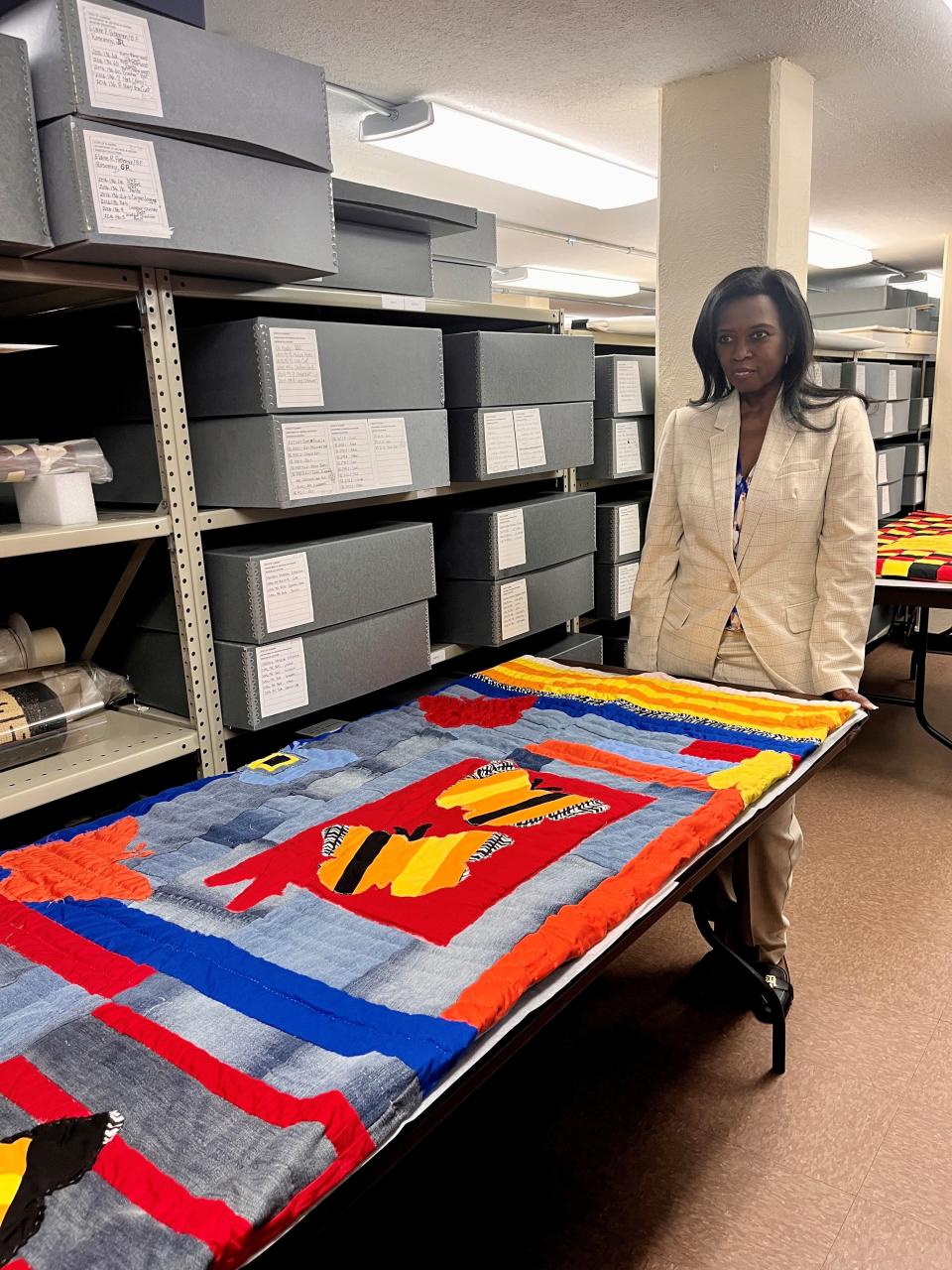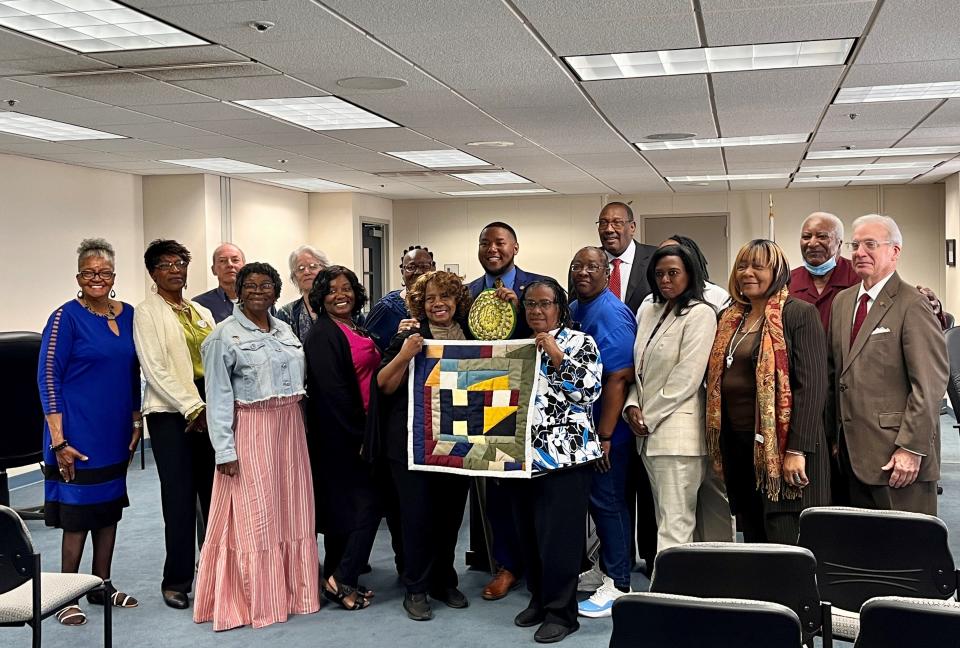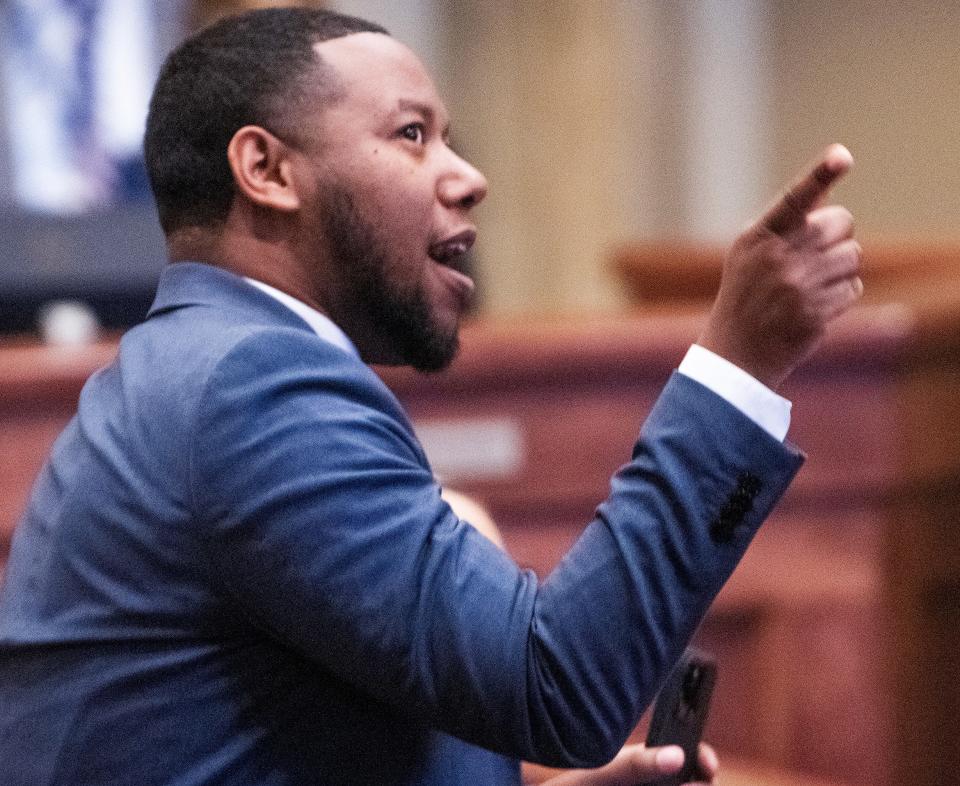Alabama Senate recognizes historic Gee's Bend quilters
Children in Gee’s Bend grow up under the quilts. Fabrics sway above them as they play and pick up pins for their mothers and grandmothers. When kids are old enough to hold a needle, they learn to quilt too.
This is how it’s been for as long as Claudia Pettway Charley can remember. “The quilting started as a necessity to keep you warm,” she said. “It wasn’t about art.”
On Tuesday, quilters from the Gee’s Bend and Alberta area made the two-hour trek from their homes in Wilcox County to the Alabama State House in Montgomery. State Sen. Robert Stewart invited them to tour the capitol, see their ancestors’ quilts — and some of their own — in the Department of Archives and History and be acknowledged in the Senate.
For the men and women who came, this recognition meant everything.
“To meet people that represent me, it’s a great honor,” Freedom Quilting Bee Legacy founder Elaine Williams said. “You don’t have to be afraid to express yourself and let them know what you need and what you expect. They’re for us.”

She established the FQBL several years ago to ensure that the historic importance of her hometown’s quilting cooperative is never lost.
The quilting tradition in Gee’s Bend dates back to the 1800s, when enslaved people made quilts for the winter, but in the centuries since, the meaning behind quilts in the area has shifted.
During the civil rights movement, the quilts became a symbol for economic empowerment, a way for many Black women in the area to provide for their families in a time when disenfranchisement was rampant.
Now, people recognize the quilts as art, as ties to their ancestors, telling the community’s weathered history.
Gee’s Bend quilts have been featured on the Paris Fashion Week 2022 runway with Chloé, in the Whitney Museum of American Art, in the Smithsonian, on HBO’s Gossip Girl reboot and plenty of other places.

“For whatever reason, Gee’s Bend just got the attention of the world a long time ago. Now, we have people come down and deem it as art,” Pettway Charley said. “We cannot stop quilting.”
As a fourth generation quilter herself, Pettway Charley said quilting will not become a dying art if she has any say in it. Her daughter is now a fifth generation quilter.
Still, the community wants people to come see the quilts and learn about their history in Alabama, not just online or in other cities’ museums.
That’s the Freedom Quilting Bee Legacy’s goal: to renovate the Bee as a museum and draw more tourism into the area.
“Tourism is a huge part of economic development,” Sen. Stewart said to the quilters on Tuesday. “When the Black Belt rises, this whole state will rise.”

Stewart’s ancestors are from the Gee’s Bend area, and he said he is committed to helping his district get the infrastructure improvements it needs to be able to sustain the volume of tourists it wants to attract.
The men and women who traveled from Wilcox County alongside Williams and Pettway Charley included: Marlene Bennett Jones, Sharon Williams, Fannie Ethridge, Creola Moorer, Rosie Witherspoon Abrams, Mary McCathry, John Warner, Pattie Irby, Taylor Irby, Sheila Smit and Gloria Carey.
Hadley Hitson covers the rural South for the Montgomery Advertiser and Report for America. She can be reached at hhitson@gannett.com. To support her work, subscribe to the Advertiser or donate to Report for America.
This article originally appeared on Montgomery Advertiser: Alabama legislators recognize Gee's Bend quilters and their history

 money
money 